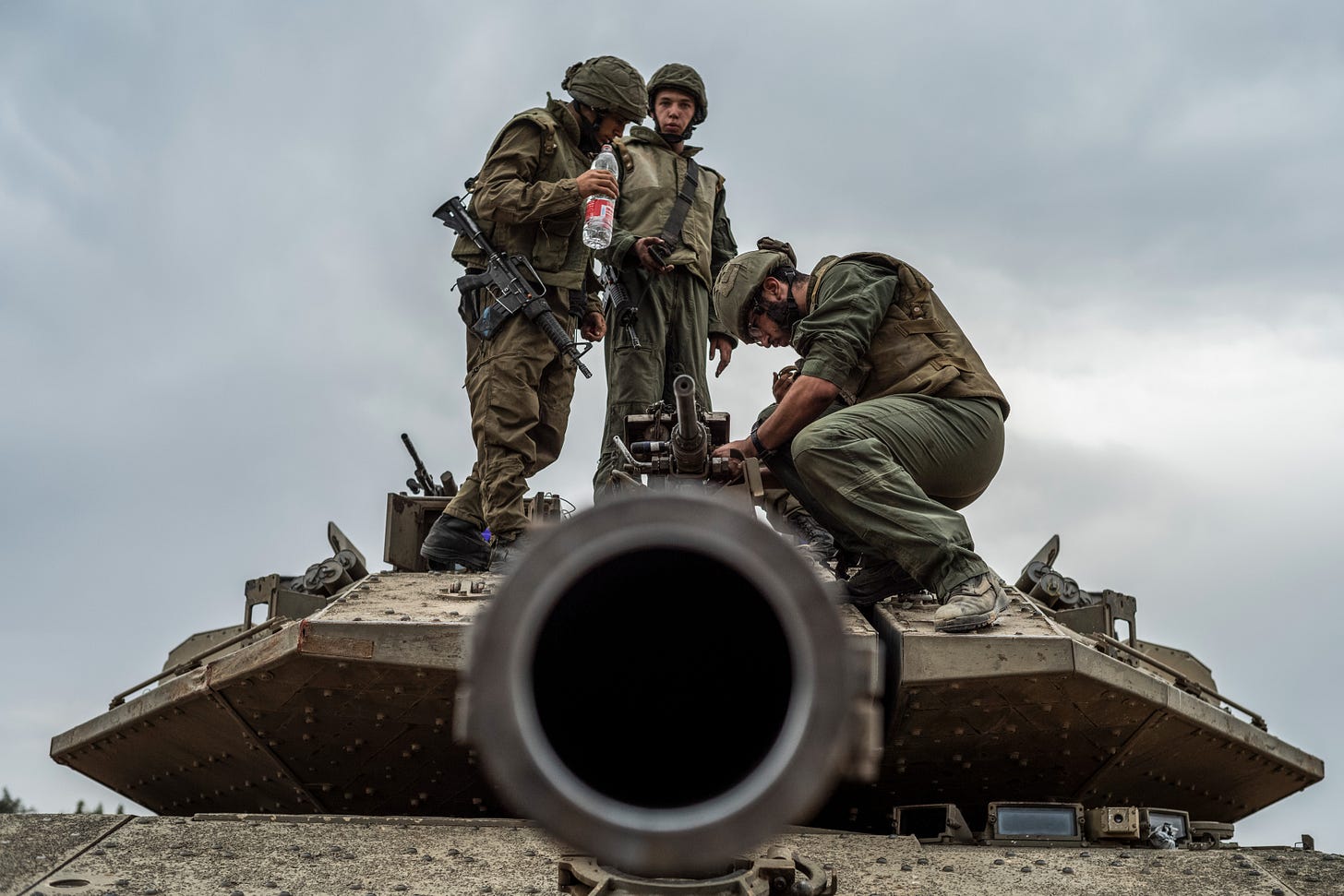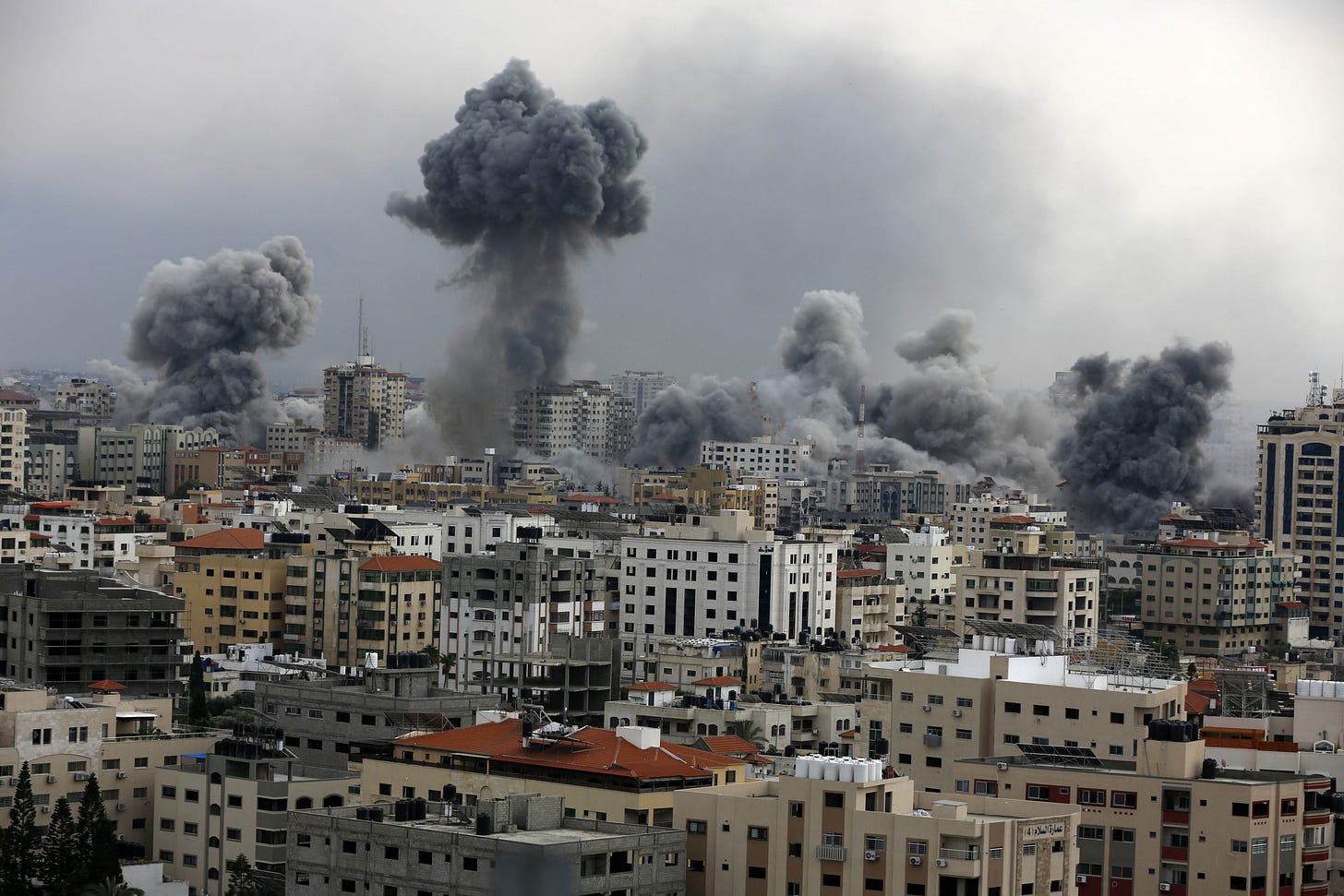One thing about journalism is that you should know more after you read it, rather than less. This, I think, is one thing that all the great and lesser journalism thinkers can agree on. Some say journalism should strive to be unbiased, and some say honest journalism means stating your opinions up front; some say journalism should be immersed in political questions, and others say journalism should rise above them. But everyone, from the most straitlaced suit-and-tie editor to the most gonzo commie fire breather, believes that the people who consume our journalism should have their level of understanding improved rather than clouded after they consume it.
So here is one small thing we should do, in that spirit: Retire the word “terrorism.” Also “terrorist,” and “terror” as a descriptive label. Decades of evidence show that the more the media pushes this concept, the more warped the public understanding of global events becomes. I am making this not as a political argument, but as a journalistic one. We, the media, are making people dumber. We should stop.
“The War on Terror.” Stupid. A stupid, jingoistic, un-illuminating phrase that the entire American mainstream media adopted with a straight face, to its eternal shame. The fact that a phrase so obviously dripping with seething fanatical nationalistic blood lust has been used by supposedly neutral reporters for decades is incredibly embarrassing. The history of this term should go into journalism textbooks as a testament to the extent to which cowardice defines the US media, particularly in times of harrowing global threats, when journalistic independence is needed the most. No matter what you think of America’s history in the Middle East or of Osama Bin Laden or of the Iraq War, the term “The War on Terror” fails as a basic unit of journalism because, rather than attempting to accurately describe something, it instead dips an entire geopolitical epoch into a vat of acid and waves around its ruined corpse in front of readers, as an introduction. It is the journalistic equivalent of attaching your friend’s birthday present to a Molotov cocktail and hurling it through their window to deliver it to them. When you ask them what they thought of it, you should not be surprised to find that their impression was tainted from the very moment they received it.
The press should never have started using the term “War on Terror” more than 20 years ago. Nor should it ever have acquiesced to the simple framing of 9/11 and the American response to it as a case of us defending ourselves from “terrorists.” I say this, again, as a matter of journalism rather than as a political position. “Terrorist” is, in essence, a slur. It defines its subject from the outset as a villain. Its connotation is that everything it labels falls outside the bounds of reasonable conduct, that it describes people and organizations and philosophies that are evil. It connotes violence that is illegitimate, in contrast to the legitimate violence delivered by the state. The term casts a shadow that forever keeps its subject, and the people who are supposed to be gaining a greater understanding of that subject, in the dark.
Pedantic arguments that “terrorism” is a neutral word with a plain definition fail for two reasons. First and most practically, they fail because the term has been so deeply embedded into the average American’s psyche as a synonym for “evil” by many years of Reagan and Rambo and Top Gun that there is no pulling it back into the land of normality. Second, all definitions of the term collapse on the rocks of perspective. The FBI’s definition of “international terrorism,” for example, is “Violent, criminal acts committed by individuals and/or groups who are inspired by, or associated with, designated foreign terrorist organizations or nations.” So terrorism is violence done by terrorists. And who are terrorists? “A person who uses unlawful violence and intimidation, especially against civilians, in the pursuit of political aims.” In other words, a person who uses violence that the state defines as illegitimate. And who makes the judgment that the violence that the state itself uses, against civilians, in the pursuit of political aims is legitimate? The state does.
It’s all a big circle jerk. My purpose here is not to try to solve once and for all the question of what makes violence legitimate. In fact, it is very unlikely that any essay or news story will forever lay to rest this question at the heart of the philosophical inquiry into power. Luckily, journalism as the mainstream press claims to practice it does not aspire to such a lofty goal. All that journalism needs to do is to tell people what is happening in a way that helps them gain a greater understanding. Introducing the concept of “terrorism” has the effect of preventing that from happening. Once the public is told that something falls under the umbrella of “terror,” they are subconsciously relieved of the need to understand it. The question has already been answered—terrorists do terrorism because they are evil terrorists. The answer is wrong, but that doesn’t matter. The reader can move on. If you have ever wondered why the median American understanding of global events tends to begin and end at the question of “What is good for America?”, here is one answer. Americans are forever being provided a simple answer to a complex question, right in the headline.
It is a black mark against the press itself that it is so institutionally fearful of being seen as sympathetic to some politically unpopular group that it often does not even attempt to help readers explore why things happen. After 9/11, news anchors were quick to pin American flag pins on their lapels and label what was happening “terror.” They were not quick to delve deeply into America’s long and dark and brutal history of power politics in the Middle East, which were the root cause of the chain of events that led up to 9/11. I will say again here, although I have already repeated this, that this is a failure of journalism, and not a political judgment. We, the press, are supposed to be giving the public the information that it needs to understand things. The fact that those things are bad or unpopular does not change that mandate. If you want people to understand the KKK, you need to tell them about the entire history of slavery and abolition and the Civil War and Jim Crow and the roots of racism itself. You can’t just say “they are bad.” That teaches nothing. Likewise, if you want people to understand what is happening between Israel and Palestine today, you must provide them with at least a century’s worth of historical background, and you must provide them with information about the current conditions of Palestinian life that motivated the Hamas fighters who decided to launch this latest attack. That is what journalism is! A quick and dirty, good faith effort to give people the truth of what is happening in the world and why. To the extent that the media is afraid to do that because they think it will make a lot of people yell at them, and defaults instead to slapping reductive labels on entire complex phenomena in order to provide an easy, false good-and-bad narrative, the media is failing in its job.
So just stop using the word “terrorism.” Even if you feel that it is an accurate label for certain events—an inherently political judgment, by the way, but not one I am arguing about here—it inevitably creates a situation that leaves readers with less nuanced understanding of those events, instead of more. It is a term that has been so hopelessly poisoned by the journalistic failures of the past that it cannot be redeemed. Activists and opinion writers can and will wield the term, but anyone whose aspiration is to inform and enlighten should leave it behind. Every time the press labels something “terrorism” it makes an implicit judgment about that thing’s moral and political legitimacy—an act that defenders of the classic “unbiased” school of journalism will be quick to tell you that they should not do. As a writer who has always shared my worthless opinions freely, such judgments would not necessarily bother me, if they were accompanied at all times by equal scrutiny of the moral and political legitimacy of the state’s own violence. But that, of course, is almost never done in news reporting. The real source of “bias” in most reporting is the things that are taken for granted. The use of “terrorism” turns news outlets into voices of the state, whether they intend such a thing or not.
In an interview with CNN yesterday, Dr. Mustafa Barghouti, a leader of the Palestinian National Initiative, said this: “We have lived all our lives under occupation. My father lived under occupation. My daughter is living under occupation. We want a time, when we, the Palestinians will be free. Hamas was not there thirty years or forty years ago. But before that, the P.L.O. was described as terrorists. Any Palestinian who struggles for his rights, or for freedom, is described as ‘terrorist.’ And the question here, ‘Do we have the right to struggle for freedom? Do we have the right to struggle for real democracy? Do we have the right to have normal democratic elections, which unfortunately Israel and the United States don’t support?’ I think we are entitled to that. But the unfortunate thing, if we struggle in a military form, we are terrorists. If we struggle in a nonviolent way, we are described as violent. If we even resist with words, we are described as provocateurs. If you support Palestinians and you are a foreigner, they describe you as ‘Anti-Semite.’ And if you are a Jewish person—and there are many—who supports the Palestinian cause, they call him ‘self-hating Jew.’ This should end. It doesn’t make sense.”
It doesn’t make sense. Rarely do we get such a good opportunity for addition by subtraction as we have here. No more “terrorism.” No more “terrorist.” No more “terror,” or wars that are allegedly being fought against it. Describe things as they are, and how they came to be. A little less laziness can do a lot of good.
Also
If you are interested in donating to help the civilians being hurt in Palestine right now, you can find lists of charities here or here.
Previously: Piss On War.
Thank you to the thousands of you who have subscribed to How Things Work. I am of course biased, but I think it is particularly important to have independent and alternative sources of media during times when the jingoism dial gets turned up, and up, and up. If you like reading this site and want to meaningfully help it to survive, please become a paid subscriber. All in together now, my friends.






What happened is terrible, what was happening was terrible, what is happening is terrible, and what will happen is terrible. And most of us have no way to change any of it.
But what I appreciate about this post is that it calls for something we are in control of: our thoughtfulness in our responses. Which is always in short supply. So it's good to be reminded.
Phrases like "the war on terrorism" or "the war on poverty" or "the war on drugs" all mess up the word "war." We know that a war is between people; when it is used to mean action against a thing or a concept, it is being used as a metaphor. Under current usage, this metaphor has been asked to carry too much weight; it has collapsed into pieces and now just radiates fearsome, uncertain emotion that can be used for whatever purpose.